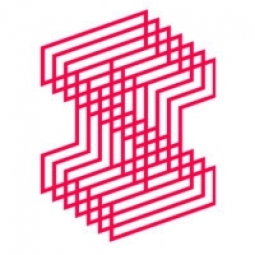Technology Category
- Sensors - Autonomous Driving Sensors
- Sensors - Level Sensors
Applicable Industries
- Automotive
- Cement
Use Cases
- Smart Lighting
- Smart Parking
About The Customer
The customer in this case is Formula E, a class of auto racing that uses only electric-powered cars. The series was conceived in 2012, and the inaugural championship commenced in Beijing in September 2014. The series is sanctioned by the FIA. Despite its innovative approach to racing and its potential for exciting competition, Formula E was struggling to break into the mainstream and attract a wider audience. The sport was battling the misconception that its electric cars were 'toy' cars, which was affecting its prestige and popularity.
The Challenge
Formula E, an electric car racing sport, was facing a significant challenge in breaking into the mainstream and attracting the attention of sports fans. The sport was at risk of remaining a niche curiosity due to the prevalent misconception that Formula E cars, being electric, were akin to 'toy' cars. This perception was hindering the sport's growth and potential to become a mainstream spectacle. The challenge was to flip this misconception and showcase Formula E as an exciting, visceral racing spectacle, particularly ahead of the Hong Kong E-Prix on Sunday 10th March.
The Solution
The solution was the creation of a piece of 'hero' content titled 'Street Level', a tongue-in-cheek response to those who believed Formula E used toy cars. Using scale replicas of the GEN2 car and CAD data of the full-size car, an epic race was created and filmed on a tiny scale. This showcased the Formula E driving style, characterized by tight, hard-fought battles played out on rough and unpredictable city streets. The campaign was rolled out globally across social media platforms such as Facebook, Instagram, and YouTube as part of the race build-up, aiming to engage audiences and change their perception of Formula E.
Operational Impact
Quantitative Benefit

Case Study missing?
Start adding your own!
Register with your work email and create a new case study profile for your business.
Related Case Studies.

Case Study
System 800xA at Indian Cement Plants
Chettinad Cement recognized that further efficiencies could be achieved in its cement manufacturing process. It looked to investing in comprehensive operational and control technologies to manage and derive productivity and energy efficiency gains from the assets on Line 2, their second plant in India.

Case Study
Integral Plant Maintenance
Mercedes-Benz and his partner GAZ chose Siemens to be its maintenance partner at a new engine plant in Yaroslavl, Russia. The new plant offers a capacity to manufacture diesel engines for the Russian market, for locally produced Sprinter Classic. In addition to engines for the local market, the Yaroslavl plant will also produce spare parts. Mercedes-Benz Russia and his partner needed a service partner in order to ensure the operation of these lines in a maintenance partnership arrangement. The challenges included coordinating the entire maintenance management operation, in particular inspections, corrective and predictive maintenance activities, and the optimizing spare parts management. Siemens developed a customized maintenance solution that includes all electronic and mechanical maintenance activities (Integral Plant Maintenance).

Case Study
Monitoring of Pressure Pumps in Automotive Industry
A large German/American producer of auto parts uses high-pressure pumps to deburr machined parts as a part of its production and quality check process. They decided to monitor these pumps to make sure they work properly and that they can see any indications leading to a potential failure before it affects their process.






